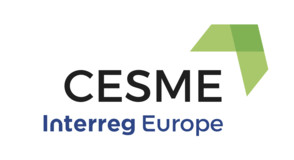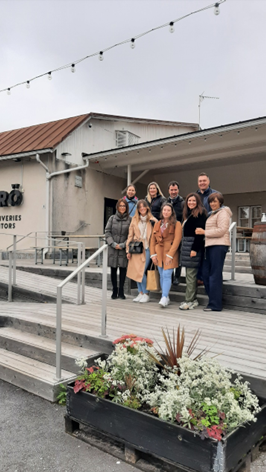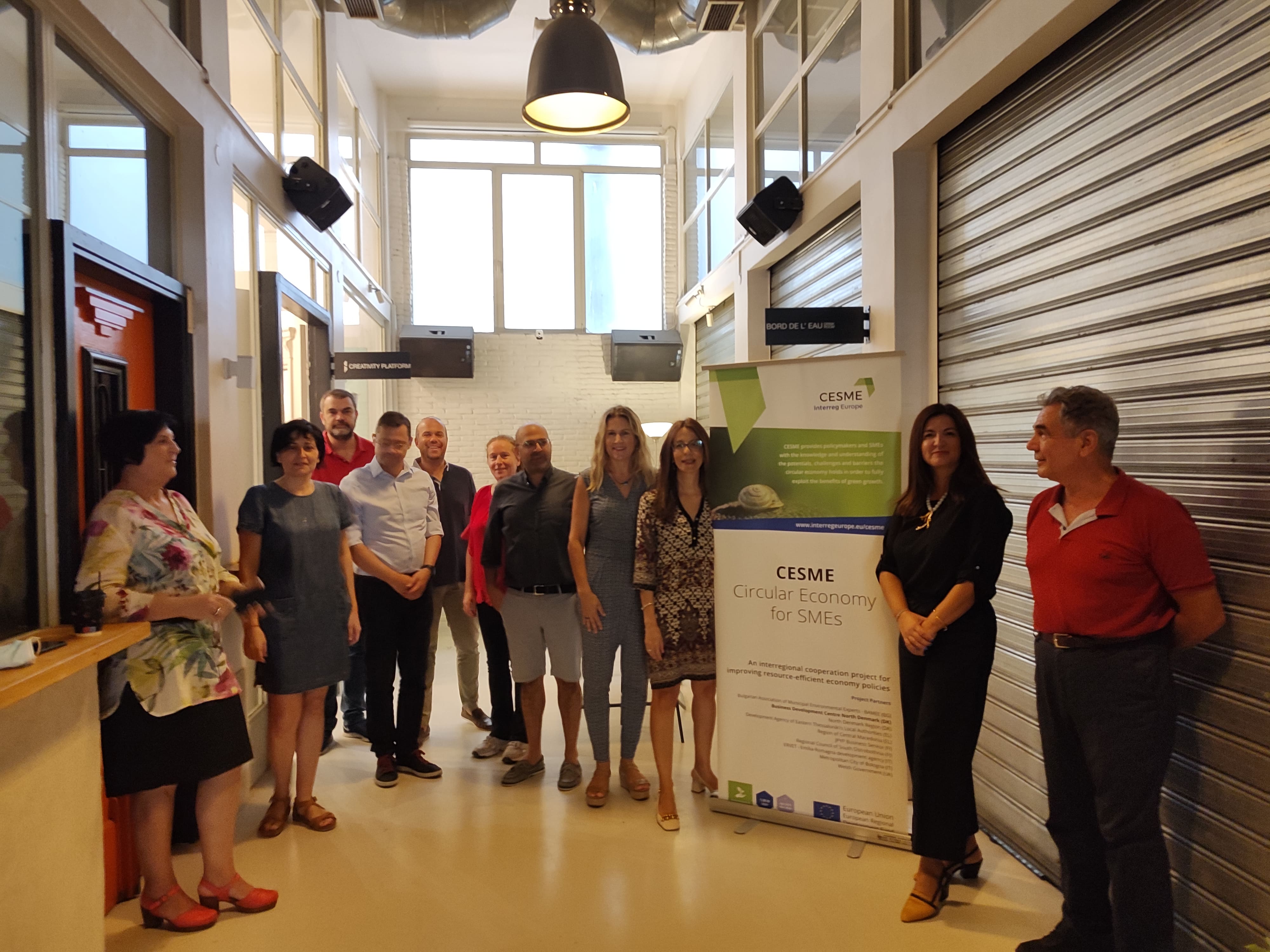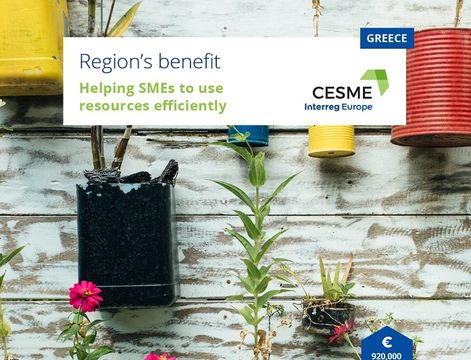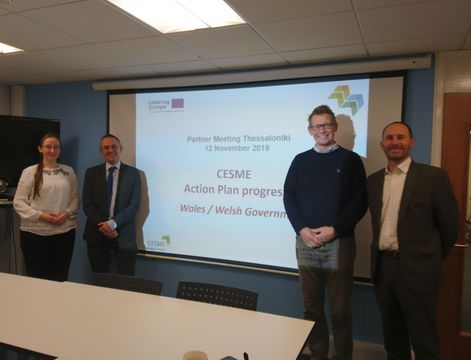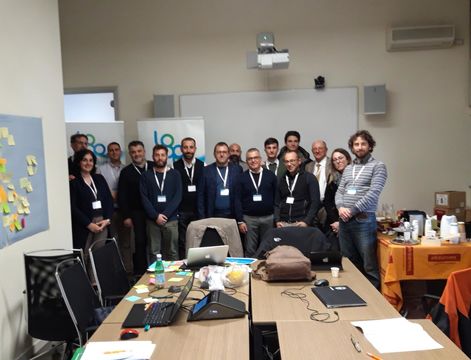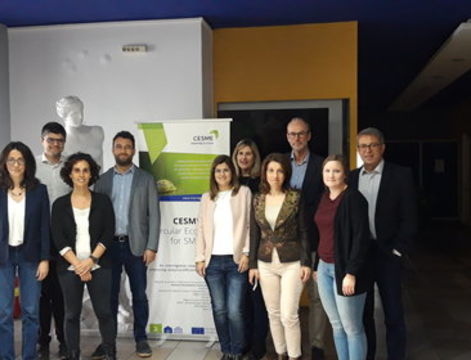The third interregional meeting of the CESME (Circular Economy for SMEs) project took place in Bologna, Italy, on November 29th-30th, hosted by the Metropolitan City of Bologna and ERVET. Twenty-four entities were represented in the meeting, including Italian representatives.
Circular economy is a very important issue for the European Regions and much attention has already been paid by regional institutions on this topic. In this respect, all European National and Regional Authorities are invited to incorporate the Circular Economy Package into their policies. Especially in the case of Italy, Emilia Romagna is the first and so far the only Italian Region with an approved regional law on circular economy (law no. 16, October 2015); this law pays attention to the whole life cycle of products, it identifies three specific areas of intervention and sets specific and quite ambitious targets, which are even more ambitious than those set by the European Union.
The key question is whether the European Regions will actually be able to fulfill the targets set by the Circular Economy Package. The first feedback from the Italian companies that presented their good practices during the Interregional Partner Meeting in Bologna was positive and they are keen in incorporating the principles of the circular economy in their business plans. However, it is of great importance that regional authorities develop and provide incentives to the small and medium-sized enterprises in order to adapt circular economy solutions into their plans.
On Tuesday 29th, three regional companies presented their good practices:
• ILIP srl, belonging to the ILPA Group, presented its 100% r-PET trays for food securing created from post-consumer plastic;
• Last Minute Market presented its local projects aimed at recovering unsold goods in favor of non-profit organizations with a “zero waste” target;
• Hydro Italia presented its project “Pyrochar”, a compact system for the treatment and disposal of sewage sludge, able to convert them into useful biochar.
In the afternoon, two more companies showed their good practices to partners during the site visits:
• HERAmbiente brought partners around its waste selection and recovery plant, recently upgraded thanks to an optical system;
• Granarolo, the most important Italian milk production chain, presented the reuse of wastewater as its water-saving strategy and brought partners around its cheese factory and its milk production facility.
On Wednesday 30th, one more regional company brought its experience as an introduction of the first workshop of the day about “barriers to cross-sectoral collaboration”:
• COEM, belonging to the regional ceramic sector, brought its experience about cross-sectoral collaboration and presented its applications, as it reuses glass waste in the production of tiles, therefore saving costs, raw materials and cutting CO2 emissions.
Not only companies, but also regional institutions highlighted their commitment to circular economy during those two days of the meeting. As an introduction to the second workshop on Wednesday 30th, the Emilia Romagna Managing Authority presented the policy tool S3 (Smart Specialization Strategy) as a “bridge to overcome the barriers”, and Banca Etica, literally the ethical bank, introduced the last workshop “How do investors view circular economy?”, bringing a financial institution’s perspective on the table of discussion.
Members of the Italian CESME local support group participated also in the three workshops and, together with CESME partners, discussed the three topics divided in two groups; one representing companies and one representing institutions.
We can definitively say that businesses are developing circular economy solutions when there are incentives to do so. However, self-incentivizing is hindered by inertia of different types such as rules, market barriers or technological limitations. All participants agreed that the role of policies is a key factor for overcoming those barriers.
A very useful experience was gained and some very interesting results were produced from the Interregional Meeting in Bologna and the good practices presented. Companies, although exemplified their support and commitment to the circular economy perspective, highlighted that there is still much that needs to be done, especially from a financial and political support point of view. The right path has already been paved, but for making the transition towards a circular economy possible keeping the topic high in the political agenda and facilitating the exchange of experience and the adoption of good practices by firms are crucial success factors.
For further information, please contact:
Valeria Stacchini ; tel. 051-6599626; email [email protected]
Irene Sabbadini; tel. +39 051 6450411; e-mail [email protected]
